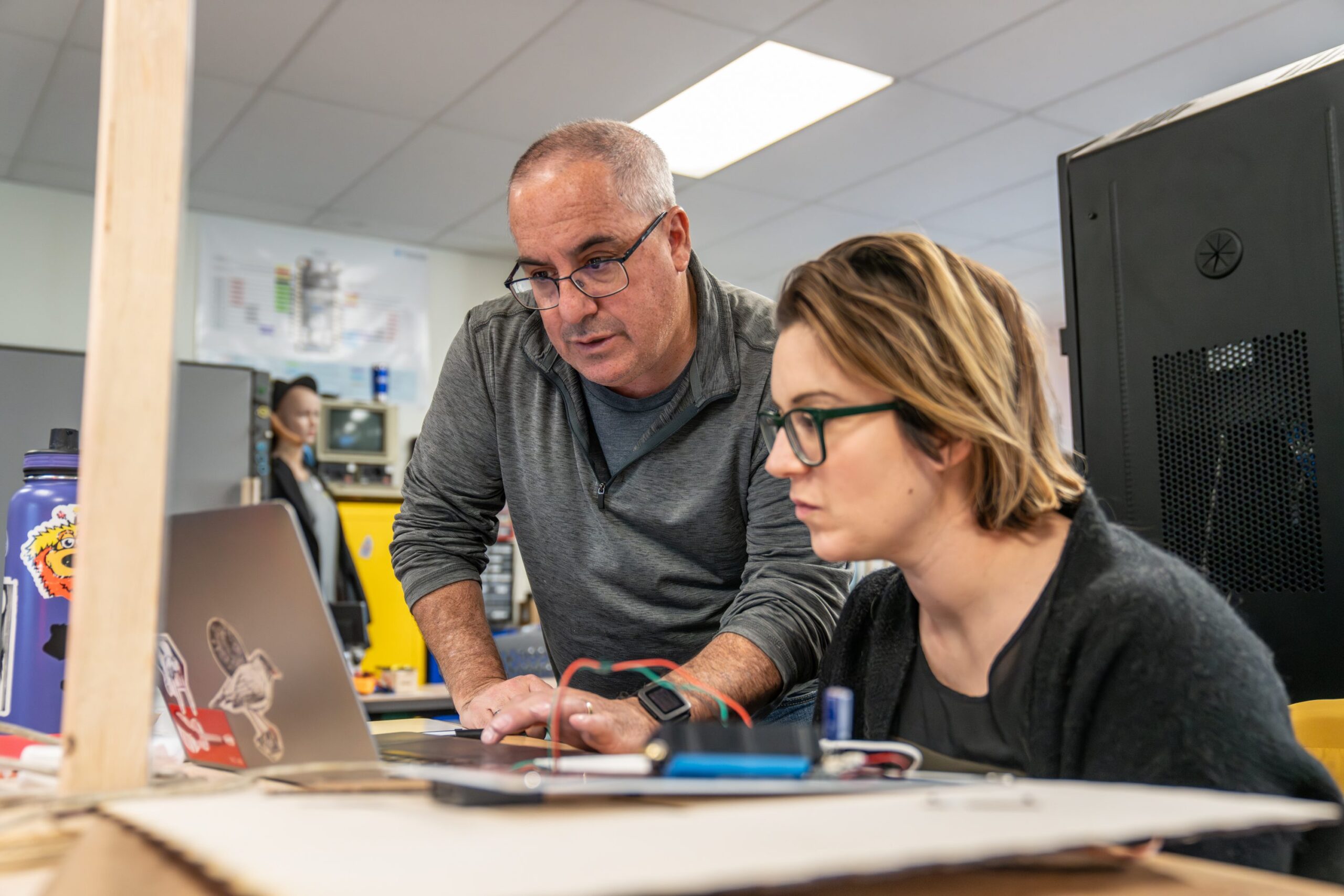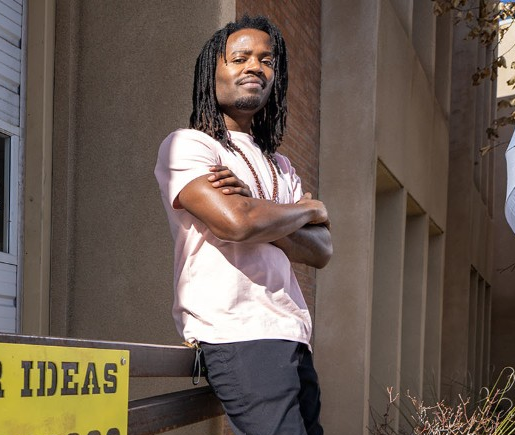
Internet of Things
Start your career in smart product design and rapid prototyping in just 10 weeks.
What You Will Learn
In Deep Dive’s Internet of Things (IoT) bootcamp, you will master the fundamentals of rapid prototyping by creating and coding smart connected devices built around low-power computer chips. Using powerful but low-cost sensors and micro controllers, you will learn to create devices that respond to their environment and collect and track data about those conditions and responses.
Our experienced instructors provide hands-on product design experiences for students who are transitioning from manufacturing and mechanical work to the technology field, as well as anyone interested in how and why things work.
If you are curious about the IoT bootcamp but aren’t ready to register, please don’t hesitate to fill out our contact form, and we will answer any questions you may have.
Highlights
- Critical thinking and project selection
- Building a smart lighting controller
- Devices for smart cities and/or smart manufacturing
- Fundamentals of circuit design, coding C/C++, and integration
- Micro-controllers and Cloud-based IoT controllers
- 3D modeling and rapid prototyping skills
- Access to SolidWorks 3D design software, 3D printers, laser cutters, and wood and metal fabrication equipment
Requirements
Learners must have a willingness and ability to communicate, collaborate and work in teams. Learners are also expected to have practical understanding and experience with computers, including an operating laptop with an operating system of Windows 10OS or Mac 10.13 or above. A mouse for design software is also required. Chromebooks and tablets are insufficient for programs delivering asynchronous/online learning activities.
Full-Time IoT Bootcamp
Schedule
- 10 weeks to completion
- Monday – Thursday: 8 a.m. – 5 p.m. (MT)
- Fridays: 8 a.m. – 3 p.m. (MT)
- 100% in-person instruction at FUSE Makerspace, 101 Broadway Blvd. NE Suite 3100, Albuquerque, NM 87102
Dates and Deadlines
October 6 – December 12, 2026
Application Deadline: October 1, 2026
February 9 – April 17, 2026
Application Deadline: February 2, 2026
June 8 – August 14, 2026
Application Deadline: June 1, 2026
Cost and Tuition Assistance
Total Cost: $11,599
Tuition assistance is available.
Are you a military spouse looking to break into the tech industry? Apply for the Military Spouse Program for IoT Learners and receive a $2,000 stipend in addition to the other benefits of full-time bootcamp learners. Apply today!
Nine out of ten applicants receive 100% funding for their Deep Dive programs. Participants receiving financial assistance via scholarships or other funding sources may not have to pay a deposit or any tuition. Learn more about tuition assistance and the payment process.
Meet Your IoT Instructors

Dr. Brian Rashap
Dr. Brian Rashap spent nearly a quarter of century at Intel Corp. where he drove the implementation of technology and IoT to improve building, manufacturing, facilities, and building capabilities and performance. Dr. Rashap is co-leading the workforce development activities for the Elevate Quantum Tech Hub with a focus on training technicians for high tech industries, such as Quantum Computing. He has a passion for making technology careers accessible for everyone and in pioneering techniques such as Just-In-Time Math to help students better grasp the application of math and science to technology fields. In addition, he teaches Physics and Circuit Analysis for CNM’s School of Math, Science, and Engineering.

Edward Ishman
Edward Ishman served as an Aerospace Maintenance Journeyman in the United States Air Force where he maintained the airworthiness of the C-130 multi-mission transport aircraft fleet. Along with CNM Ingenuity’s Technology Solutions Lab, Edward has collaborated with ABQ BioPark providing greenhouse monitoring technology as well as Century Sign Builders where he used 3D print technology and programming methods to produce an indoor air quality device.
What Our Students Are Saying
“This is a bootcamp that will live up to its cost. You will develop a deeper understanding of the behind-the-scenes activities that drive today’s world of non-stop interactions with the digital world. We are so fortunate to have Dr. Brian Rashap as the instructor of this bootcamp. It is hard to imagine that someone with his depth of knowledge and real-world experience is willing to help anyone who is willing to do the work be a part of making this marvelous new world of IoT.”
— Ivan B.
Career Readiness
As a full-time bootcamp learner, you will have access to Career Readiness services from our Deep Dive Student Support staff, including:
- Durable soft skill building lessons
- Resume and portfolio feedback
- Job search techniques
- Technical interview preparation
- Technical networking practice
- HireCNM resources
Credit for Prior Learning
Turn your completed non-credit training through Deep Dive into credit towards your degree or certificate program. Visit CNM’s Credit for Prior Learning page for more information.
